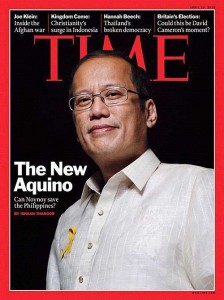Referring to extrajudicial killings and the killing of journalists in the Philippines in his July, 2010 State of the Nation Address, President Benigno Aquino III declared that his administration would “hold murderers accountable.”
Despite that pledge, six journalists have been killed since then, or a total of ten since the Ampatuan Massacre of November 23, 2009 claimed the lives of 58 men and women, of whom 32 were journalists and media workers.

In addition to the killings that have continued in the Aquino administration, a number of community journalists have also been threatened, sued for libel on the flimsiest grounds, barred from attending interviews and press conferences, and physically assaulted. In a recent incident, unidentified persons also burned a Catholic Church-owned radio station in Occidental Mindoro. All are indicative of a state of mind among those who want to silence the press that could, in the present circumstances, lead to murder.
And yet, except for increasing the budget of the Witness Protection Program, the Aquino administration has taken almost none of the steps agreed upon in the August, 2010 meeting between media advocacy and journalists’ organizations and his communication group and the department of justice as necessary to stop the killings. Among these steps were Malacanang support for changes in the rules of court to speed up the judicial process, and the inclusion of media representatives in the formation of Quick Response Teams to immediately investigate the killing of journalists and assure the preservation of evidence in the crime site.
After his pledge in his 2010 SONA to prosecute murderers, Mr. Aquino has been surprisingly silent when it comes to the killing of journalists, despite the possibility that a statement from him each time a journalist is murdered declaring his displeasure over the failure of the police to prevent it, and ordering immediate police action, could prod the police to greater efficiency and warn the would –be killers of journalists that things have changed since the Arroyo regime, and they will now be prosecuted. Even more meaningfully, Mr. Aquino has also refused to dismantle private armies, despite their role in the November 23 massacre and in a number of other cases of journalists’ murders in other parts of the country.
Only by demonstrating that the killers and would- be killers of journalists can no longer get away with murder can the killings stop, and begin the process of dismantling the culture of impunity. That only ten cases have resulted in convictions since 1986, out of 124 cases of journalists killed for their work, encourages the continuing killing of journalists in the Philippines. That much has been known to the national and international press freedom and media watch groups since 2003, when Philippine press freedom groups and the Committee to Protect Journalists found that the killing of journalists had become a part of the media environment because of the weaknesses of the justice system in the communities.
That awareness did not prevent the international press, free expression and media advocacy groups from being shocked when the Ampatuan Massacre occurred. They have declared November 23 the International Day to End Impunity to emphasize the global significance of what happened in the Philippines on that date. And yet, if we’re to judge from his inaction, Mr. Aquino seems to be as unconcerned over the killing of journalists in the Philippines as his predecessor Mrs. Gloria Macapagal Arroyo.
Speaking at a round table discussion on the Ampatuan Massacre and the Culture of Impunity last November 14, an Assistant Secretary from the Presidential Communication Operations Office (PCOO) declared that “we (the government) can’t really put an end to impunity.” Is it perhaps that self-fulfilling prophecy, which has already declared the administration’s surrender even before the battle has begun, that’s driving the Aquino administration’s inability and unwillingness to take the steps necessary to dismantle the culture of impunity so as to stop the killings that since 1986 have widowed and orphaned hundreds of Filipinos?
(This is a pooled editorial for the International Day to End Impunity. Photo and links added by Tonyo Cruz.)